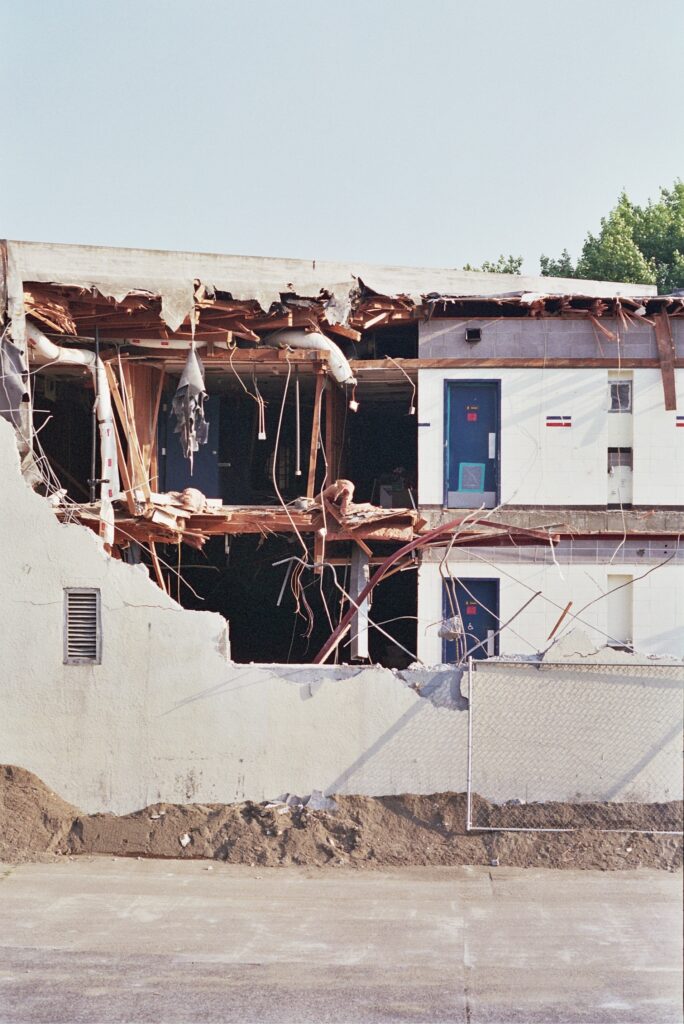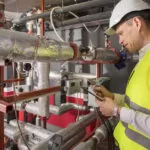As a building owner in Texas, you’re likely familiar with the ever-evolving landscape of construction and property management. One crucial aspect that often requires careful consideration is the demolition process. Before embarking on any demolition project, it is essential to conduct thorough demolition surveys to ensure the safety of the structure, compliance with regulations, and the smooth progression of your project.
Table of Contents
Why Demolition Surveys Matter
Demolition surveys serve as a comprehensive assessment tool that helps identify potential hazards and risks associated with the demolition of a structure. In Texas, where weather conditions and geological factors can vary widely, these surveys become even more critical. By engaging in a detailed survey, you gain valuable insights into the structural integrity of the building, the presence of hazardous materials such as asbestos, and potential environmental concerns.
One of the primary benefits of a demolition survey is risk mitigation. It allows you to anticipate challenges that may arise during the demolition process, helping you plan accordingly and avoid costly setbacks. Additionally, adhering to regulatory requirements is paramount, and a thorough survey ensures that your project complies with local, state, and federal regulations governing demolition activities.

Comprehensive Structural Analysis
Before initiating any demolition, it’s essential to conduct a comprehensive structural analysis of the building. This involves assessing the condition of the foundation, load-bearing walls, and overall stability. In Texas, where extreme weather events like hurricanes and tornadoes are not uncommon, understanding the structural vulnerabilities of a building becomes crucial.
The survey should identify any structural issues that may compromise the safety of the demolition process. This includes evaluating the integrity of walls, beams, columns, and other essential components. By addressing potential structural concerns beforehand, you can implement strategies to minimize risks and ensure a controlled demolition.
Identification of Hazardous Materials
In Texas, as in many other regions, older buildings may contain hazardous materials such as asbestos. Asbestos, once widely used in construction, poses severe health risks when disturbed. A demolition survey includes a thorough examination of the building materials to identify the presence of asbestos or other harmful substances.
Proper identification of hazardous materials allows for the development of a safe and effective demolition plan. It ensures that the necessary precautions are taken to protect workers, the surrounding environment, and the community at large. This proactive approach not only safeguards human health but also helps you avoid legal liabilities associated with improper handling of hazardous materials.
Environmental Considerations
Texas, with its diverse ecosystems and environmental sensitivity, requires building owners to be mindful of the environmental impact of their actions. Demolition surveys play a crucial role in assessing potential environmental concerns associated with the demolition process. This includes evaluating the disposal of construction debris, managing water runoff, and minimizing dust and noise pollution.
By addressing environmental considerations in the survey phase, you can implement sustainable practices that align with local environmental regulations. This not only demonstrates your commitment to responsible construction practices but also helps foster a positive relationship with the community and regulatory authorities.
Regulatory Compliance and Permits
Navigating the regulatory landscape is an inherent part of any construction or demolition project. In Texas, obtaining the necessary permits and complying with local building codes is imperative. A demolition survey provides the documentation required for obtaining the relevant permits and ensures that your project aligns with all regulatory requirements.
From municipal ordinances to state regulations, a comprehensive demolition survey takes into account the legal aspects of the demolition process. This proactive approach minimizes the risk of legal complications, delays, and fines, allowing your project to proceed smoothly within the bounds of the law.
Cost-Efficiency and Project Planning
While some may see demolition surveys as an additional expense, they are, in fact, a cost-effective investment in the long run. Identifying potential challenges and risks early in the process allows for efficient project planning and budgeting. It helps you avoid unforeseen costs that may arise due to structural issues, hazardous materials, or regulatory non-compliance.
By incorporating the findings of the demolition survey into your project plan, you can create a realistic timeline and budget. This foresight not only streamlines the demolition process but also contributes to the overall success of your construction project.
Choosing the Right Professionals for Your Demolition Survey Needs
Now that you understand the importance of demolition surveys, the next step is selecting the right professionals to conduct a thorough assessment of your building. In Texas, where construction standards and regulations may vary, partnering with experienced and reputable surveyors is crucial.
Expertise and Experience
Look for surveyors with a proven track record in conducting demolition surveys in Texas. Experience in the local market equips professionals with an understanding of regional challenges, regulatory nuances, and environmental considerations specific to the area. This expertise ensures a more accurate and reliable assessment of your building.
When selecting a surveying team, consider their experience in handling diverse projects, including residential, commercial, and industrial structures. This breadth of experience indicates a well-rounded skill set and the ability to adapt to various demolition scenarios.
Compliance with Industry Standards
Ensure that the surveyors you choose adhere to industry standards and best practices. In Texas, compliance with regulations set forth by agencies such as the Texas Department of Licensing and Regulation (TDLR) is essential. A reputable surveying team will have a comprehensive understanding of these standards and work diligently to meet and exceed them.
Ask for references and reviews from previous clients to gauge the satisfaction levels of those who have utilized the services of the surveying professionals. A positive reputation within the industry is a strong indicator of reliability and competence.
Technological Capabilities
Advancements in technology have significantly enhanced the capabilities of demolition surveying. From 3D scanning to drone technology, the tools available to surveyors have evolved to provide more accurate and detailed assessments. When selecting a surveying team, inquire about the technology they utilize and how it enhances the quality and efficiency of their surveys.
A surveying team that embraces modern technology demonstrates a commitment to precision and thoroughness. This not only contributes to the accuracy of the survey findings but also ensures a more efficient and timely assessment process.
Clear Communication and Transparency
Effective communication is crucial throughout the demolition survey process. Choose a surveying team that emphasizes clear and transparent communication from the initial consultation to the delivery of the survey report. This includes explaining the survey process, addressing any concerns or questions you may have, and providing regular updates on the progress of the survey.
Transparency extends to the reporting phase, where the surveyors should present their findings in a clear and accessible manner. A well-documented survey report should outline all relevant details, including structural assessments, identification of hazardous materials, environmental considerations, and recommendations for the demolition process.
Conclusion
As a building owner in Texas, the success of your demolition project hinges on the thoroughness of your demolition survey. By understanding the importance of these surveys and choosing the right professionals to conduct them, you set the foundation for a safe, compliant, and cost-effective demolition process. From structural analysis to environmental considerations, a comprehensive survey not only identifies potential challenges but also provides the insights needed to navigate the complex landscape of demolition in Texas. By investing in a quality demolition survey, you not only safeguard the integrity of your project but also contribute to the responsible and sustainable development of your property in the Lone Star State.




